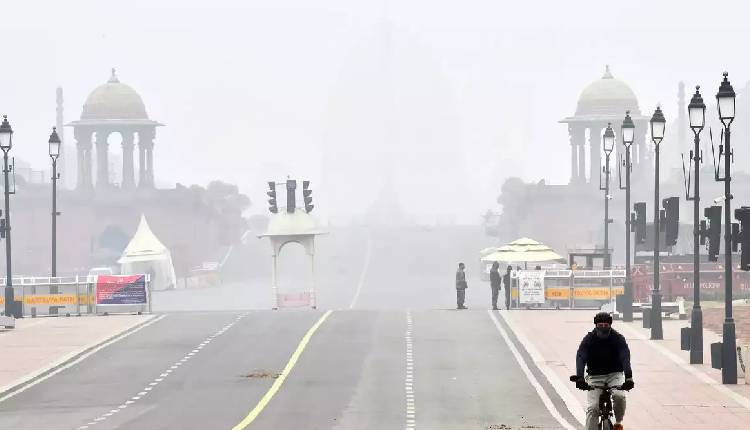
New Delhi: Delhi’s air quality continues to be classified as ‘very poor,’ with the Air Quality Index (AQI) measured at 313 as of 6 a.m. on February 3, according to the Central Pollution Control Board (CPCB). The Indian Meteorological Department (IMD) has issued a yellow alert for thick fog in the city, warning of potential disruptions due to low visibility. Upcoming weather forecasts indicate cloudy conditions with light rain or drizzle expected in the next few days.
In recent days, AQI levels have sharply increased, indicating a troubling trend attributed to unfavorable weather conditions. This morning, several areas in Delhi reported concerning AQI figures, with Anand Vihar reaching 357 and Ashok Vihar at 335. Other affected areas, such as Jahangirpuri, Punjabi Bagh, Patparganj, and Wazirpur, also experienced AQI readings between 322 and 347. Vivek Vihar recorded the highest AQI at 359, highlighting the severity of the pollution crisis. Additionally, R K Puram, Chandni Chowk, and Najafgarh reported AQI levels above 300.
The rise in pollution can be linked to stagnant winds, changing wind patterns, smog, and lower mixing heights. On February 3, a dense fog layer enveloped parts of the city, further trapping pollutants and worsening air quality. This change in weather is due to an active disturbance in the atmosphere. IMD forecasts suggest daytime temperatures will range from 22 degrees Celsius to 9 degrees Celsius at night.
Looking ahead, the Air Quality Early Warning System predicts that the AQI will remain in the ‘very poor’ category for the next few days, especially on February 3 and 4. The persistent pollution poses a risk to the health and well-being of residents, making it important for individuals to stay updated and take necessary precautions.
